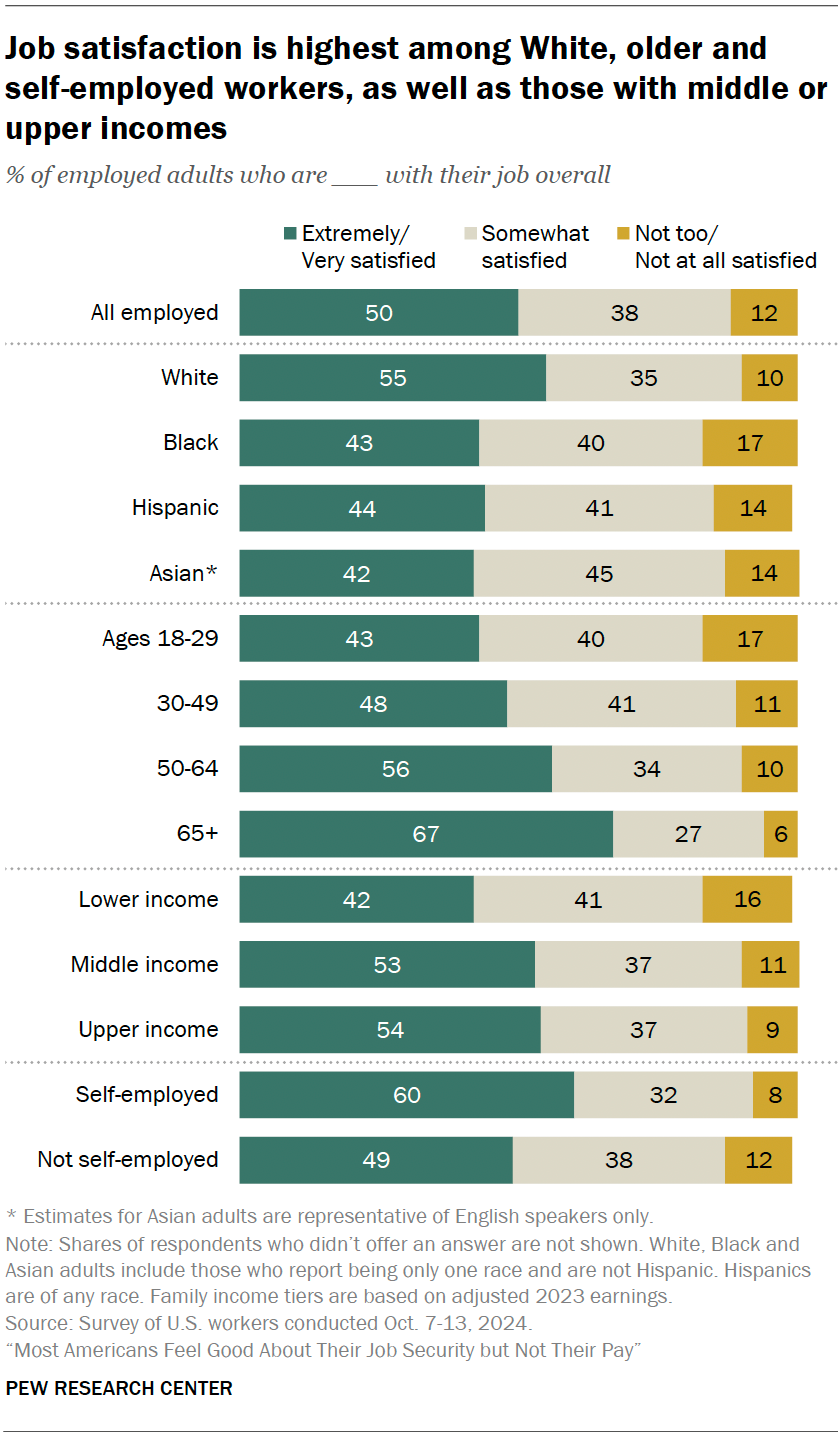A recent survey reveals that while most U.S. workers express satisfaction with their jobs, nearly one-third are dissatisfied with their pay. The findings, released Tuesday by the Pew Research Center, are based on responses from nearly 5,400 working adults across the country.

The survey reveals that 88% of respondents feel satisfied with their jobs, with 50% reporting they are extremely or very satisfied and 38% somewhat satisfied. Among racial groups, White workers reported the highest satisfaction levels, with 55% stating they are very satisfied. In comparison, satisfaction rates were lower for Hispanic (44%), Black (43%), and English-speaking Asian (42%) workers.
Age also plays a role in job satisfaction, with 67% of respondents aged 65 and older indicating high satisfaction. Workers aged 50 to 64 followed closely behind at 56%.
Just over half of middle- and upper-income earners reported being very satisfied with their jobs, compared to 42% of lower-income earners. When asked about specific job factors, a strong majority indicated satisfaction—whether extreme, very, or somewhat—regarding benefits, pay, promotion opportunities, training for new skills, and relationships with supervisors and coworkers.
Additionally, a significant 69% of respondents felt they had a “great deal” or “fair amount” of job security. However, more than a third expressed dissatisfaction with their chances for advancement, with 25% reporting they were not too satisfied and 13% not satisfied at all. Similarly, nearly a third of all participants indicated they were dissatisfied with their pay, with 20% saying they were not too satisfied and 10% not satisfied at all.
Among workers who reported dissatisfaction with their pay, 80% cited that their wages have not kept pace with the cost of living as the primary reason. Other significant factors included feeling that their pay is too low for the quality of work they provide (71%) and for the amount of work they do (70%).

Workers in the health care and social assistance sectors are among those most likely to feel they receive a fair amount of respect, with 56% expressing this sentiment. In contrast, employees in hospitality, service, arts, entertainment, recreation, and retail industries are less likely to report feeling respected.
In its report, Pew also highlighted changes in the characteristics of U.S. workers since 2000. Today, a greater percentage of workers hold a college degree (45% compared to 31% in 2000) and the workforce is older, with the median age rising to 42 from 39. Additionally, the proportion of workers aged 50 and older has increased to 34%, up from 24% two decades ago.
White workers continue to comprise the majority of the adult workforce, but their share has declined to 60% from 71% over the past 25 years. Meanwhile, the representation of Hispanic and Asian workers has increased, now accounting for 19% of the workforce compared to 12% in 2000. The percentage of Black workers has remained relatively stable at 12%, up slightly from 11% two decades ago.

In terms of gender, women’s representation in the workforce has remained consistent, making up 47% today compared to 46% in 2000. Additionally, workers born outside the U.S. now represent 19% of the workforce, up from 13% in 2000.
Key words: #JobSatisfaction #PewResearch #WorkforceDiversity #IncomeDisparity #JobSecurity #WorkplaceRespect #AgingWorkforce

